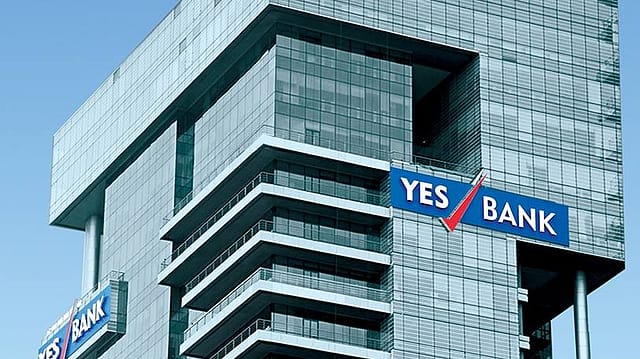Decoding YES Bank’s fast-rising share price
ADVERTISEMENT

The YES Bank stock on Tuesday surged to its month’s high of ₹59.9, recovering more than 106% from its 52-week low of ₹29.05 in just 18 trading sessions. It closed the day with a gain of 6.3% at ₹58.2 over the previous day’s close.
The recovery was majorly helped by speculations of YES Bank wooing global technology giant Microsoft as an investor. It is also said that corporate titans like Bharti Airtel’s Sunil Mittal and Hero MotoCorp’s Sunil Kant Munjal have shown interest in investing in India’s 13th largest bank. YES Bank, which ranked 61 on the Fortune India 500 list of 2018, refused to comment on the speculations.
The bank’s board is slated to meet on Friday (November 1) to approve results for the July-September quarter and the half year (H1) ended September 2019.
“While the results are going to be out in two days, the run-up in share prices seems to be lacking any investing logic,” said an analyst with a foreign brokerage on condition of anonymity.
If at all there was a reason, it could be the early morning analysts’ call on October 3 just before trading began. YES Bank’s managing director and CEO Ravneet Gill and his team took some hard questions in the 8 a.m. analysts’ call, which lasted for over 48 minutes, after the bank’s stock hit a 52-week low on October 1.
During the call, Gill had emphasised that since the beginning of the first quarter of FY20, the bank was conserving capital and also trying to stabilise asset quality. In the course of the month, the bank on two occasions highlighted that it was taking on defaulters with an iron fist.
On October 15, the bank informed stock exchanges that it had recovered ₹645 crore from its exposure to the Religare group by the sale of a 6.77% block of shares of Fortis Healthcare. Further, on October 22, the bank in a release to stock exchanges informed that in a bid to recover over ₹479 crore from real estate developer Sumer Group it had taken possession of two plots of land in Mumbai.
Before these recoveries, on October 10, YES Bank announced that it had hired seasoned bankers Anita Pai and Jasneet Bachal as the bank’s chief operating officer and chief marketing officer, respectively. While Pai, with experience of over 29 years, joined the bank from ICICI Bank, Bachal, with over 20 years of experience, joined from Kotak Group.
While these developments can be counted as a routine part of a bank’s business, there was hardly anything peculiar that pushed the YES Bank stock up in a short duration. What is typical of banks at this moment is weakening asset quality. Jefferies India analysts Nilanjan Karfa and Harshit Toshniwal in an October 14 note on Indian banks point out that “YES Bank’s financials will be critical from a sector perspective”.
At this juncture, raising capital is most crucial for YES Bank. Karfa and Toshniwal expect YES Bank’s capital constraints to limit loan growth and fee income to remain weak. “Clarity on capital raise will be crucial,” the duo notes as the bank builds a slippage ratio of 8.0% for the second quarter of FY20 against 11.6% for the first quarter of the current financial year.
From its previous price target of ₹50 a share, Jefferies analysts have revised the price target downwards to ₹35, valuing the stock at 0.6 times adjusted book (as of December 2020) and 5.7 times earnings (12 months to December 2021).
In Karfa and Toshniwal’s view “a large capital raise adequate for cleaning the balance sheet and financing growth over the next two-three years, no material acceleration in NPLs [non-performing loans] or no decline in NII [net interest income] and fee income, continued retail build-up” are the factors which could help YES Bank’s share price to go up.
In the early October call, analysts had grilled Gill and his team on raising capital. Adarsh Parasrampuria, banking analyst at Nomura, for instance, had raised concerns on the then stock price of YES Bank, and its impact on the quantum of the bank’s fundraising plans.
In YES Bank’s defence, Anurag Adlakha had said: “We will not raise capital at any price.” On August 10, YES Bank had announced the appointment of Adlakha as chief financial officer (CFO) and designated him as group CFO. The current rise in share prices does help YES Bank to get fresh capital at a relatively better valuation.
Earlier, in an October 9 note from Mumbai-based Emkay Global Financial Services, a team of analysts, led by banking analyst Anand Dama, reiterated their “sell” rating on YES Bank with a revised target price of ₹38 a share, “amid rising corporate stress leading to weak return ratios and sub-par capital position with incremental capital raise at lower valuations”. The target price revision of over 55%, from ₹85 earlier, is an endorsement of the fact that the worst is all but over for the private lender.